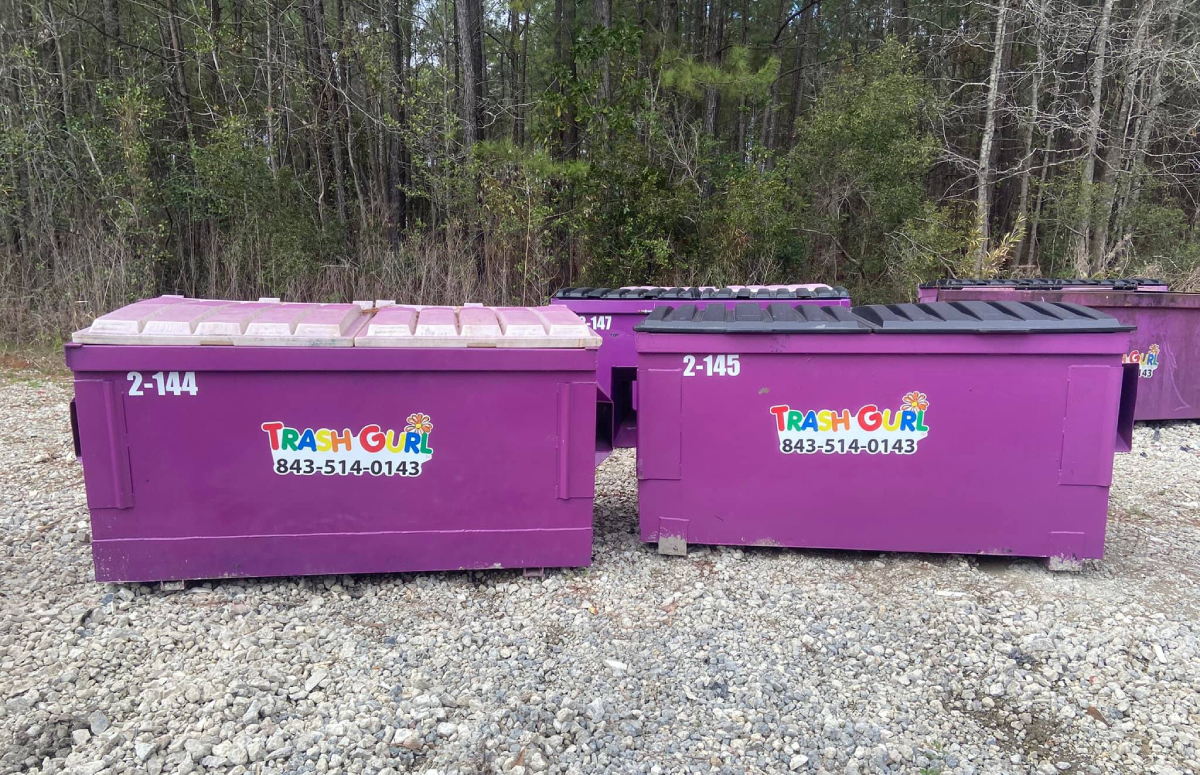Roll-off dumpsters are fantastic tools for managing waste during home renovations, cleanouts, and construction projects. They make disposal easy and efficient, but knowing what can and can’t go in them will save you time, money, and potential headaches.
In this blog, we’ll provide an insightful guide to help you navigate the dos and don’ts of roll-off dumpster usage.
What Can Go in a Roll-Off Dumpster
1. General Household Waste
- Items: Outdated furniture, broken appliances, old clothes, and general clutter.
- Why It’s Okay: These are everyday items we all need to get rid of occasionally, and roll-off dumpsters are perfect for handling them.
2. Construction Debris
- Items: Wood scraps, drywall, insulation, and roofing remnants.
- Why It’s Okay: Whether you’re doing a DIY project or handling a professional job, roll-off dumpsters are designed to manage these materials efficiently.
3. Yard Waste
- Items: Grass clippings, leaves, branches, and other organic garden waste.
- Why It’s Okay: Roll-off dumpsters make yard cleanups a breeze, especially when tackling seasonal chores or landscaping projects.
4. Cardboard and Paper
- Items: Old boxes, newspapers, and paper packaging.
- Why It’s Okay: While it’s great to recycle, sometimes it’s easier to toss these in the dumpster, especially if curbside recycling isn’t an option.
5. Non-Hazardous Electronics
- Items: Outdated computers, old TVs, and other electronic devices.
- Why It’s Okay: These can usually be included, but it’s wise to check local regulations to ensure proper disposal.
What Can’t Go in a Roll-Off Dumpster
1. Hazardous Materials
- Items: Paints, chemicals, batteries, and fluorescent bulbs.
- Why It’s Not Okay: These items can harm the environment and need special handling. Be sure to use designated disposal sites or programs for these materials.
2. Tires
- Items: Car tires, truck tires, and similar rubber products.
- Why It’s Not Okay: Tires require special recycling processes due to their material and size. Look for tire recycling programs in your area.
3. Medical Waste
- Items: Needles, syringes, and other medical or pharmaceutical waste.
- Why It’s Not Okay: Medical waste can pose health risks and should be disposed of according to specific guidelines.
4. Asbestos
- Items: Old insulation and certain flooring materials containing asbestos.
- Why It’s Not Okay: Asbestos is dangerous and needs professional handling and disposal to protect everyone’s health.
5. Large Appliances with Refrigerants
- Items: Refrigerators, air conditioners, and freezers.
- Why It’s Not Okay: These appliances contain refrigerants that require special disposal methods. Check with your local waste management service for proper disposal.
6. Contaminated Construction Debris
- Items: Debris tainted with hazardous substances, like asbestos or lead.
- Why It’s Not Okay: Contaminated materials must be handled separately to ensure safety and compliance with regulations.
Tips for Smooth Disposal
- Check Local Regulations: Rules can vary, so it’s a good idea to check local guidelines to avoid fines and ensure proper disposal.
- Separate Recyclables: If you can, separate recyclables from your general waste to make a positive environmental impact.
- Ask for Help: If you’re unsure about what’s acceptable, don’t hesitate to ask a Charleston dumpster rental company like Trash Gurl for guidance.
To Learn More About Dumpster Rentals in Charleston, SC, Reach Out Today!
Knowing what can and can’t go in your roll-off dumpster helps keep your project running smoothly and ensures that waste is handled correctly. By following these guidelines, you’ll avoid extra fees and contribute to a cleaner environment.
If you have questions, need assistance, or wish to schedule your dumpster rental, contact us today. Guaranteeing reliable service and expert waste removal, we’re happy to help determine the ideal dumpster size and rental period for your junk removal project.





